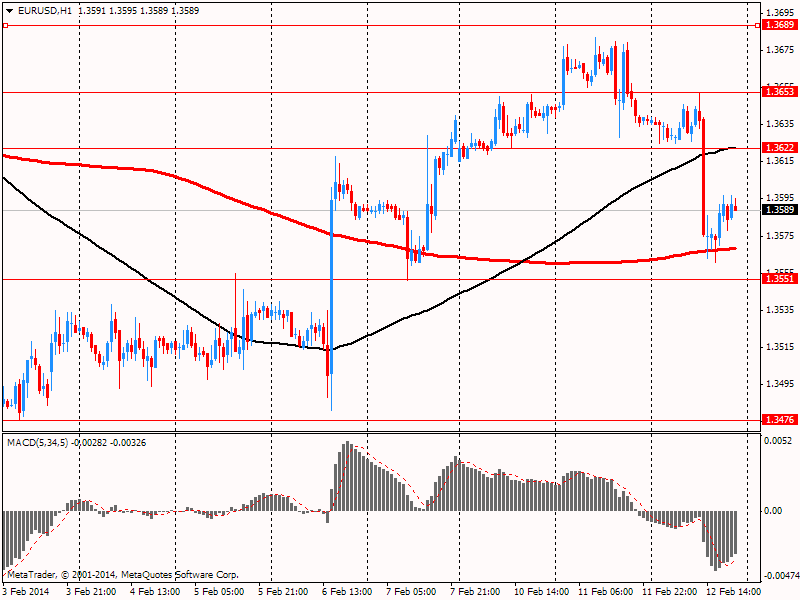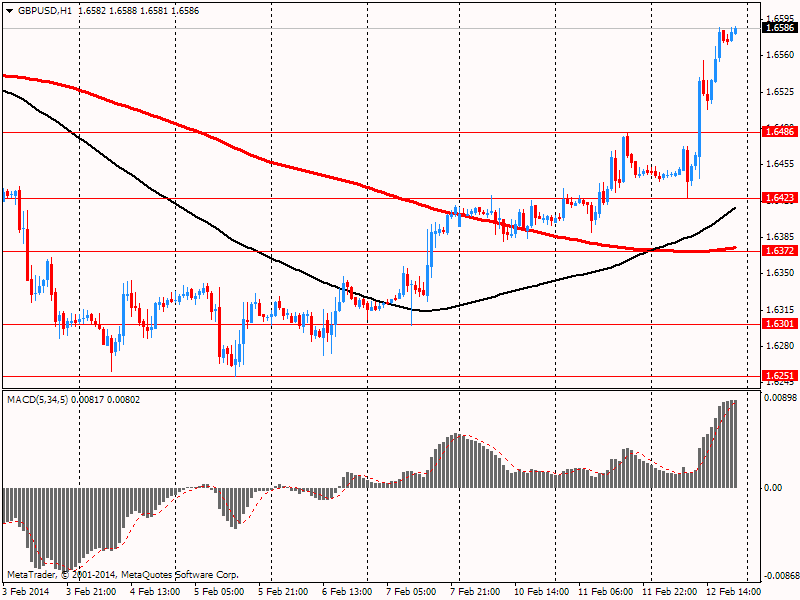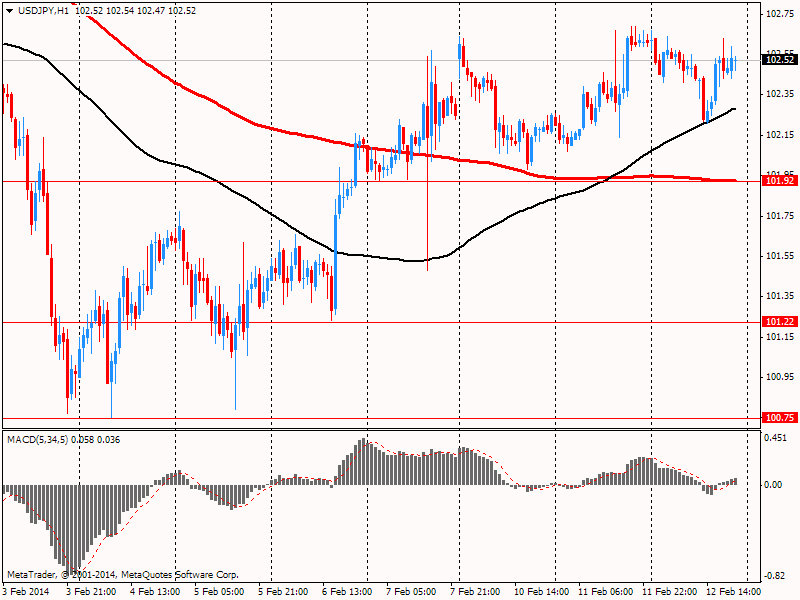- American focus : the euro fell markedly against the U.S. currency
Market news
American focus : the euro fell markedly against the U.S. currency
The euro exchange rate dropped significantly against the U.S. dollar , which was mainly due to the statements Benoit Kerr, a member of the ECB Governing Council , regarding the fact that the ECB is "seriously " considering lowering the overnight interest rate , charged by banks on deposits to negative territory. However, he does not expect a significant effect of this measure .
" This is what we are discussing very seriously. But do not expect too much from it , "- said Kerry , referring to the effects of negative interest rates on deposits for the economy.
Kerra repeated for several months that the central bank still has room for action to stimulate recovery in the euro against the background of weak growth and low inflation . These actions may include the purchase of assets in the secondary market and reducing deposit rates to negative territory , which will lead to the fact that a bank will take a percentage of the deposit of their funds at the ECB .
This measure, which is almost without precedent in the eurozone, could encourage banks that hold funds on deposit with the ECB's current interest rate of 0.0 % , to redirect the excess liquidity in the euro-zone economy . But it will also increase the costs of banks that may impact on their customers, making loans more expensive.
Also influenced the course of trading words the Federal Reserve Bank of St. Louis , James Bullard , who noted that the unexpectedly rapid decline rates b / d to 6.6 % last month should soon push the FOMC to return to the framework of a more " traditional" strategy of monetary policy.
Rate b / d in the U.S. reached nearly 6.5 % target level set by the Central Bank as a threshold value for which the monetary authorities can target in terms of start raising rates . Bullard called FOMC changes to a "statement of intent " and " give more quantitative estimates " on monetary policy , abandoning the threshold levels.
Pound has risen considerably against the U.S. dollar after the Bank of England has made changes to the policy of transparency. According to the Bank of England inflation report , published today , the Central Bank is going to keep rates at a record - low of 0.5 % , at least for another year, even if the unemployment rate / p fall to 7% threshold that, according to expectations occur in Q1 2014 . Bank of England pointed out that the British economy will grow even before the Bank to raise rates . But it is worth noting that the increase will be gradual and not to such a high level , which was celebrated before the crisis.
"The consequences of the financial crisis and the availability of economic obstacles indicate that some time rates should be kept at a low level , - the report says . - Even when the economy returns to a normal level of production capacity , and inflation closer to the target level , the bank rate will be significantly lower than 5 % ( level set before the crisis ) . "
MPC predicts that in the last quarter of 2013 Britain's GDP to grow by 0.9 % against the previous estimate of 0.7 %. As for the remainder of 2014 , the Central Bank expects to rise by 3.4 % versus 2.8 % November forecast . As for inflation , according to expectations, in the 2nd quarter of 2015 its growth will slow to 1.7% , and then accelerate again in 2016 and will reach 1.9%.
Bank of England Governor Mark Carney , speaking at a press conference after the release of the report , noted that Britain's economic recovery is underway, but it "still is neither stable nor balanced ." He defended the policy of transparency , noting that it has helped reduce the rate hike expectations .
The yen traded slightly higher against the dollar , though lost some previously won positions . Little impact on the bidding had words BOJ board member Takahide Kiuchi , who reported that an extra dose of easing monetary policy to prevent a potential recession caused by the expected introduction of a sales tax in April , could do more harm than good.
Of the nine members of the Board of Directors Kiuchi among those most concerned about the downside risks and is known pessimistic regarding the economic prospects of the country. He fears that the slowdown in the emerging economies of the world will cause drop in exports and that sluggish wage growth will slow consumer spending. And another round of additional easing could lead to the fact that the market may take longer , said Kiuchi .
"It's hard to say how much additional attenuation affect the rise in prices," - he added. Monetary policy " is designed to create an environment in which the Japanese economy can reach its full potential ," - said Kiuchi , warning against heavy reliance on monetary policy as an economic tool . He stressed the importance of strengthening the economy through growth strategies and structural reforms.


